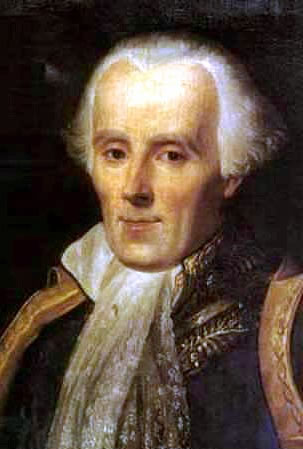Pierre-Simon Laplace Quotes
What we know is not much. What we do not know is immense.
I had no need of that hypothesis.
Science dissipates errors born of ignorance about our true relations with nature, errors the more damaging in that the social order should rest only on those relations. TRUTH! JUSTICE! Those are the immutable laws. Let us banish the dangerous maxim that it is sometimes useful to depart from them and to deceive or enslave mankind to assure its happiness.
Man follows only phantoms.
It is remarkable that a science which began with the consideration of games of chance should have become the most important object of human knowledge.
All the effects of Nature are only the mathematical consequences of a small number of immutable laws.
Here I shall present, without using Analysis [mathematics], the principles and general results of the Théorie, applying them to the most important questions of life, which are indeed, for the most part, only problems in probability. One may even say, strictly speaking, that almost all our knowledge is only probable; and in the small number of things that we are able to know with certainty, in the mathematical sciences themselves, the principal means of arriving at the truth—induction and analogy—are based on probabilities, so that the whole system of human knowledge is tied up with the theory set out in this essay.
The weight of evidence for an extraordinary claim must be proportioned to its strangeness.
Napoleon: You have written this huge book on the system of the world without once mentioning the author of the universe.
Laplace: Sire, I had no need of that hypothesis.
What we know is not much. What we do not know is immense.
The theory of probabilities is at bottom nothing but common sense reduced to calculus; it enables us to appreciate with exactness that which accurate minds feel with a sort of instinct for which ofttimes they are unable to account.
However, the small probability of a similar encounter [of the earth with a comet], can become very great in adding up over a huge sequence of centuries. It is easy to picture to oneself the effects of this impact upon the Earth. The axis and the motion of rotation changed; the seas abandoning their old position to throw themselves toward the new equator; a large part of men and animals drowned in this universal deluge, or destroyed by the violent tremor imparted to the terrestrial globe.
Nature laughs at the difficulties of integration.
This simplicity of ratios will not appear astonishing if we consider that all the effects of nature are only mathematical results of a small number of immutable laws.

